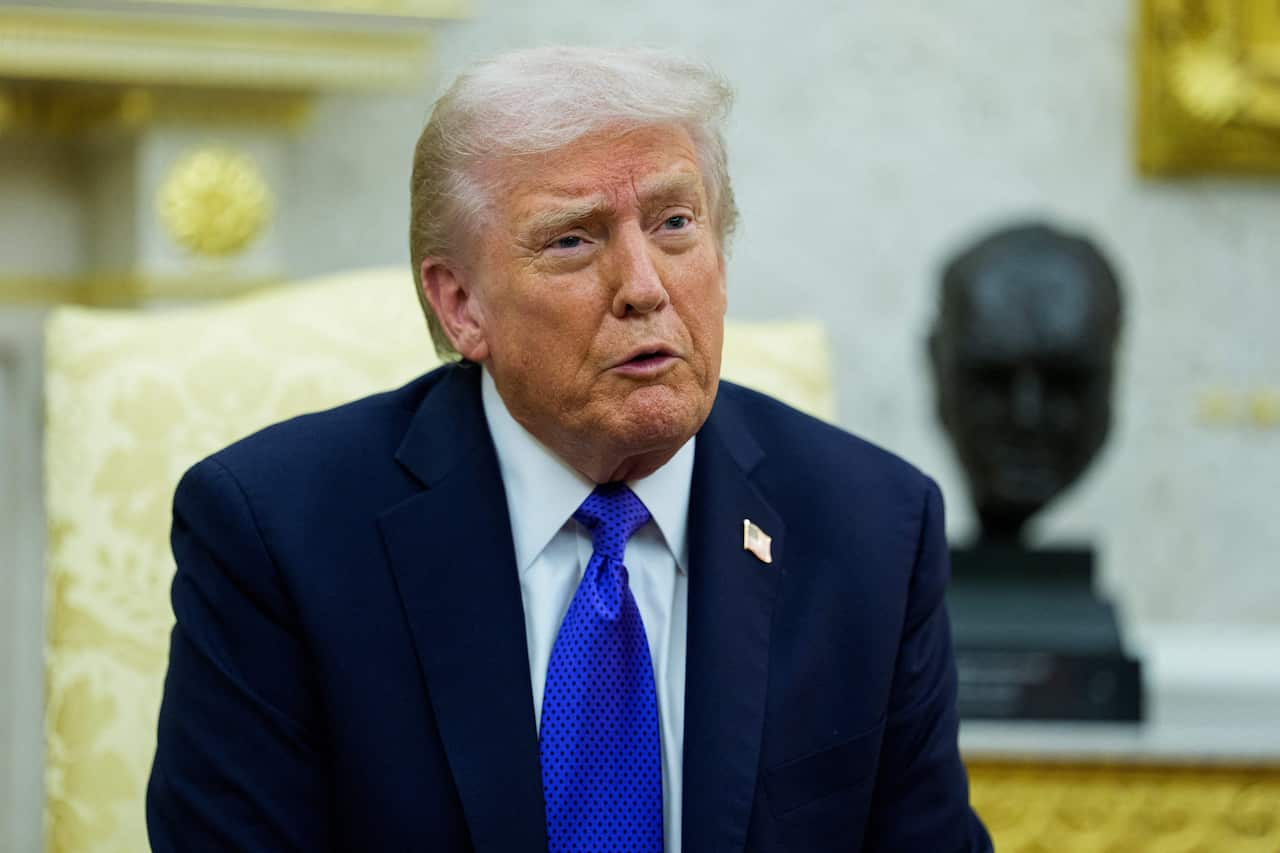The United States has imposed sanctions on Colombian President Gustavo Petro, as US President Donald Trump sharply escalated a feud with the country's longtime Latin American ally over accusations that Petro has refused to stop the flow of cocaine into the US.
Tensions between the US and many countries in the region have been mounting for weeks. The US military has ratcheted up activity in the southern Caribbean, striking vessels in international waters that it has alleged without evidence are carrying drugs.
Trump this week called Petro an "illegal drug leader" after the leftist president accused the US of committing "murder" and said the US had fired at a boat off Venezuela that belonged to a "humble family", not a rebel group.
"Since President Gustavo Petro came to power, cocaine production in Colombia has exploded to the highest rate in decades, flooding the United States and poisoning Americans," US Treasury secretary Scott Bessent said in a statement on Saturday morning AEDT.
"President Petro has allowed drug cartels to flourish and refused to stop this activity. Today, President Trump is taking strong action to protect our nation and make clear that we will not tolerate the trafficking of drugs into our nation."
Colombian president, interior minister hit back
The sanctions prompted a defiant response from Petro.
"Fighting drug trafficking for decades, and effectively, has brought me this measure from the government of the very society for whom we helped so much to stop their cocaine consumption," the Colombian president said in a post on X.
"A complete paradox — but not one step back, and never on our knees."
While rare, the imposition of sanctions on a head of state is not unprecedented.
The move adds Petro to a short list that includes the leaders of Russia, Venezuela and North Korea.
Tensions have also spiked between the US and Venezuela recently, whose government the US has long accused of harbouring drug traffickers and undermining democratic institutions.
Trump deployed an aircraft carrier to the Caribbean on Saturday as part of the US' military buildup in the area, including eight additional warships, a nuclear submarine and F-35 aircraft.
Petro's wife and son, as well as Armando Benedetti, Colombia's interior minister, were also hit with sanctions under the authority that allows the US to target those it accuses of being involved in the global illicit drug trade.
On X, Benedetti said he had been penalised for merely stating that Petro was not a drug trafficker and that the sanctions proved the US anti-drug fight was a "sham".
"For the US, a nonviolent statement is the same as being a drug trafficker. Gringos go home," Benedetti added.
The sanctions action freezes any US assets of those targeted and generally bars Americans from dealing with them.
"President Trump has been clear that President Petro better close up these killing fields immediately, or the United States will close them up for him, and it won't be done nicely," said White House spokesperson Anna Kelly.
Sanctions the latest in a string of clashes
Trump and Petro have clashed several times since the Republican US president took office in January, including in an escalating feud stemming from the US military strikes on vessels allegedly transporting drugs.
Last weekend, Trump threatened to raise tariffs on Colombia and said this week that all funding to the country had been halted.
In a separate statement on Friday, the US state department said secretary of state Marco Rubio will not certify Colombia's counter-narcotics efforts.
Last month, the US revoked Petro's visa after he joined a pro-Palestinian demonstration in New York and urged US soldiers to disobey Trump's orders.

Earlier in the year, Petro and Trump clashed over Colombia's refusal to accept military aircraft carrying deported migrants.
Petro also had differences with Trump's Democratic predecessor Joe Biden, sometimes criticising the US for a policy he considered overly harsh against drug-producing countries and for not taking enough responsibility for dealing with Americans' demand for illegal narcotics.
But Petro and Biden sought ways to maintain drug enforcement cooperation and also shared common ground on issues such as climate change and migration.
Petro has pledged to tame coca-growing regions in Colombia with massive social and military intervention, but the strategy has brought little success.
On Tuesday, the Colombian foreign ministry said Petro's government had seized more cocaine than previous administrations and that coca leaf crop expansion has slowed every year since 2021.
In a meeting with the US diplomats in Colombia, Petro "reiterated the importance of the United States basing its assessments on accurate data regarding Colombia's fight against drugs" the ministry said.
For the latest from SBS News, download our app and subscribe to our newsletter.

